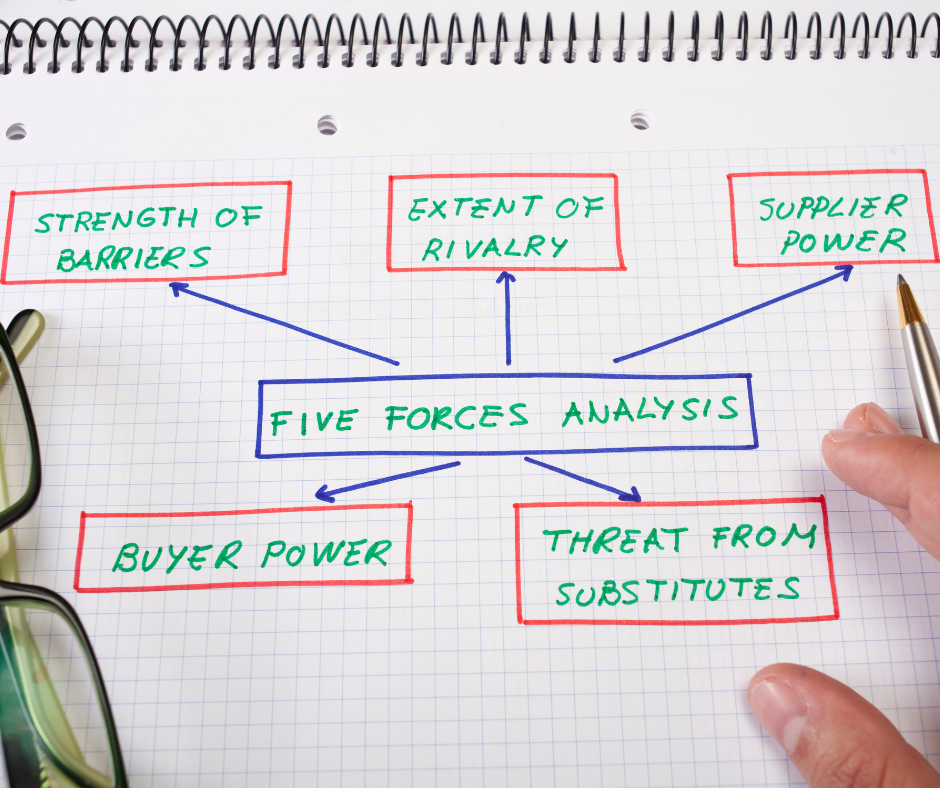Conflict theory is a sociological perspective that views society as a system characterized by inequality, competition, and conflict between groups with different interests and access to resources. The theory posits that the struggle for power and resources is the driving force behind social change and that conflict is inevitable in any society.
According to conflict theory, society is made up of different social classes or groups that are in constant competition with each other for power and resources. The theory suggests that the dominant group in society, typically the ruling class or elites, maintain their power and privileges by controlling resources, institutions, and laws that benefit their interests. This creates social inequality, with some groups having more advantages and opportunities than others.
Conflict theory is based on the ideas of Karl Marx, who argued that the history of human societies is marked by class struggle. Marx believed that capitalism, the dominant economic system in his time, was inherently unjust and exploitative, as it allowed the ruling class to accumulate wealth and power at the expense of the working class. He saw revolution as the means to achieve social change and create a more equitable society.
In summary, conflict theory is a framework for understanding how power, resources, and social inequality shape social relationships and institutions. It is a useful tool for analyzing social problems and understanding the dynamics of social change.
Lets look more into details:
- Conflict Theory Assumptions
- Adaptations of Marx's conflict theory
- Examples of Conflict Theory
- What Are Some Common Criticisms of Conflict Theory?
- How can Deskera Help You?
- Key Takeaways
Conflict Theory Assumptions
The conflict theory is a sociological perspective that assumes the following:
- Inequality and competition are inherent in society: Conflict theory assumes that society is characterized by inequality and competition, with groups and individuals vying for power, resources, and access to opportunities. It sees society as being divided into groups with different levels of power, privilege, and access to resources, with some groups benefiting at the expense of others.
- Social change is driven by conflict: The theory posits that social change occurs through conflict, rather than through consensus or gradual evolution. Conflict arises when there is a struggle over resources or power, and this leads to social change as the dominant group tries to maintain its position while the subordinate group seeks to gain more power and influence.
- Institutions and systems maintain inequality: Conflict theory assumes that social institutions and systems, such as the economy, education, and government, are designed to maintain the status quo and reinforce existing power structures. These institutions are seen as tools of the dominant group to maintain their position of power and privilege, often at the expense of the subordinate group.
- Ideology is used to justify inequality: Conflict theory assumes that the dominant group uses ideology, such as religion, nationalism, or individualism, to justify their position of power and privilege. Ideology is used to create a sense of shared identity and to promote the interests of the dominant group, while delegitimizing the struggles of the subordinate group.
Overall, conflict theory assumes that society is characterized by inequality and competition, with conflict driving social change. It sees social institutions and systems as being designed to maintain the status quo, and ideology is used to justify inequality and maintain the power and privilege of the dominant group.
Adaptations of Marx's conflict theory
Marx's conflict theory has been adapted and modified over time, with scholars and theorists developing new perspectives and approaches to address some of the shortcomings of the original theory. Here are a few examples of adaptations of Marx's conflict theory:
- Neo-Marxism: Neo-Marxist perspectives build on the ideas of Marx, but emphasize the importance of cultural factors, such as gender, race, and sexuality, in understanding power relations and social inequality. Neo-Marxist theorists also incorporate the ideas of other social theorists, such as Antonio Gramsci, who emphasized the role of ideology in maintaining the status quo.
- Intersectionality: Intersectionality is a theory that examines how different forms of oppression, such as racism, sexism, and homophobia, intersect and interact to create unique experiences of social inequality. Intersectionality highlights the importance of understanding how multiple forms of oppression intersect to create unique experiences of marginalization and disadvantage.
- Critical Race Theory: Critical race theory is an approach that examines how race and racism intersect with other forms of oppression, such as class and gender, to create social inequality. It emphasizes the importance of historical and structural factors in understanding the ways in which racism is embedded in social institutions and systems.
- Feminist Conflict Theory: Feminist conflict theory is an approach that focuses on the ways in which gender inequality and patriarchy are embedded in social structures and institutions. It emphasizes the ways in which women are marginalized and oppressed in society, and how gender intersects with other forms of oppression.
- World Systems Theory: World systems theory is an approach that examines the global economic system and how it is structured to maintain power imbalances between developed and developing countries. It emphasizes the ways in which wealthy countries and corporations exploit the resources and labor of poorer countries to maintain their power and privilege.
These adaptations and modifications of Marx's conflict theory demonstrate the ongoing relevance and importance of the theory for understanding social inequality and the struggle for power and resources in society.
Examples of Conflict Theory
Conflict theory can be applied to many different areas of social life to understand how power, resources, and social inequality shape social relationships and institutions. Here are a few examples of how conflict theory can be used to understand different social issues:
- Economic Inequality: Conflict theory can be used to understand economic inequality and the struggles between social classes. The theory suggests that the wealthy and powerful elite in society maintain their position by controlling resources and institutions, which creates social inequality and a struggle for power and resources between the working and ruling classes.
- Racial Inequality: Conflict theory can also be applied to understanding racial inequality and the ways in which race intersects with other forms of oppression to create social disadvantage. The theory suggests that racism is embedded in social structures and institutions and is used to maintain the power and privilege of the dominant group.
- Gender Inequality: Conflict theory can be used to understand gender inequality and the ways in which patriarchy is embedded in social structures and institutions. The theory suggests that women are marginalized and oppressed in society, and that gender intersects with other forms of oppression to create unique experiences of social disadvantage.
- Political Conflict: Conflict theory can be applied to understanding political conflict and the struggle for power and resources within political institutions. The theory suggests that political institutions are designed to maintain the status quo and reinforce existing power structures, which can create conflict between different groups with different interests and levels of power.
- Environmental Conflict: Conflict theory can also be used to understand environmental issues and the struggle for resources between different groups. The theory suggests that environmental problems are often caused by the exploitation of natural resources by powerful groups, which can create conflict with other groups who are negatively impacted by environmental degradation.
Conflict theory can be used to understand many different social issues and the ways in which power, resources, and social inequality shape social relationships and institutions.
What Are Some Common Criticisms of Conflict Theory?
Like any theory, conflict theory is not without its criticisms. Here are some common criticisms of conflict theory:
- Overemphasis on Power and Conflict: Some critics argue that conflict theory places too much emphasis on power and conflict and ignores other important aspects of social life, such as cooperation, consensus, and social integration. They argue that conflict theory portrays society as being in a constant state of conflict, which is not always accurate or useful for understanding social phenomena.
- Simplistic View of Social Change: Some critics argue that conflict theory provides a simplistic view of social change by focusing only on the role of conflict in driving social change. They argue that social change can also occur through other mechanisms, such as technological advances, cultural changes, and individual actions.
- Economic Determinism: Some critics argue that conflict theory is too focused on economic factors and determinism, and that it ignores the role of culture, ideology, and other non-economic factors in shaping social relations and institutions. They argue that the theory can be reductionist and overlook the complexity of social life.
- Lack of Attention to Agency: Some critics argue that conflict theory places too much emphasis on structure and power relations and overlooks the role of agency and individual action in shaping social phenomena. They argue that individuals and groups are not simply passive recipients of social structures and institutions, but actively shape them through their actions and decisions.
- Limited Scope of Analysis: Some critics argue that conflict theory can be limited in its scope of analysis, focusing only on macro-level structures and institutions and overlooking the ways in which social phenomena are shaped by individual-level processes and interactions.
These criticisms suggest that conflict theory, like any theory, is not a complete or perfect explanation of social phenomena and should be used in conjunction with other theories and perspectives to gain a fuller understanding of social life.
How can Deskera Help You?
Deskera's integrated financial planning tools allow investors to better plan their investments and track their progress. It can help investors make decisions faster and more accurately.
Deskera Books can assist you in automating your accounting and mitigating business risks. Deskera makes it easier to create invoices by automating many other procedures, reducing your team's administrative workload.
Deskera also offers a suite of integrated applications to help businesses manage their financials, inventory, and operations. Furthermore, other business aspects such as HR (Deskera People), CRM (Deskera CRM), and ERP are provided by Deskera. These could be crucial and can help short sellers keep track of their businesses and make better decisions.
Key Takeaways
- Conflict theory focuses on the competition among social groups for limited resources.
- According to conflict theory, social and economic institutions are tools of struggle between groups or classes, used to maintain inequality and the ruling class's dominance.
- According to Marxist conflict theory, society is divided along economic class lines, with the proletarian working class and the bourgeois ruling class.
- Later versions of conflict theory investigate other aspects of conflict among capitalist factions as well as various social, religious, and other types of groups.
Related Articles











